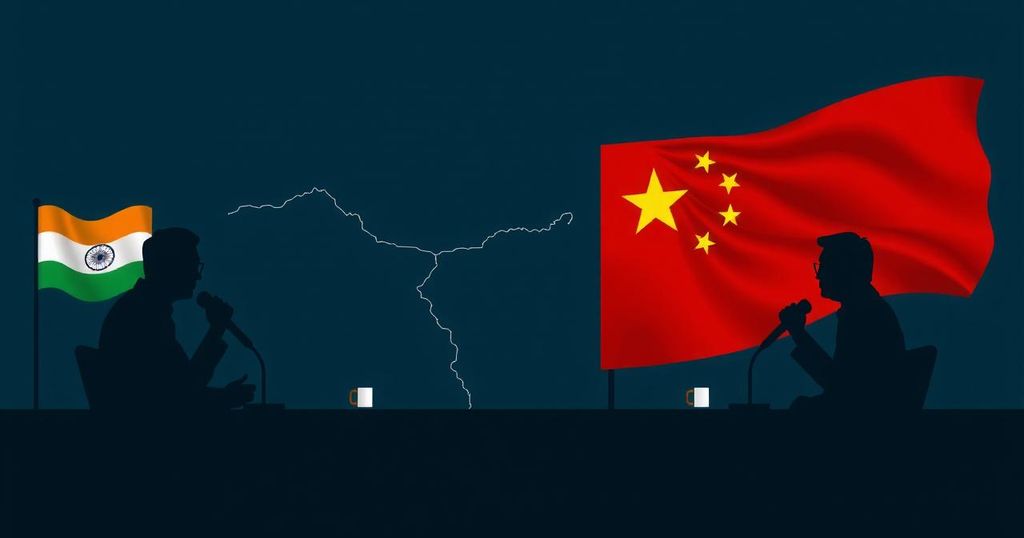S. Jaishankar Addresses Progress in India-China Border Dispute Talks
S. Jaishankar clarified that his mention of 75% progress in discussions with China pertains solely to troop disengagement in eastern Ladakh. He condemned China’s violations of previous agreements and highlighted the resulting clashes as overshadowing bilateral relations. Challenges remain around patrolling rights, necessitating de-escalation to improve ties.
India’s External Affairs Minister, S. Jaishankar, addressed the progress made in discussions regarding the border dispute with China, clarifying that his statement about 75% resolution referred specifically to troop disengagement in eastern Ladakh. During his remarks at the Asia Society Policy Institute, Jaishankar emphasized that this disengagement is only a segment of the broader issue, highlighting the complex dynamics between the two nations. Jaishankar recounted that China’s breaches of previously established border agreements, particularly during the COVID-19 pandemic, escalated tensions in the region. He noted, “When I said 75 per cent of it has been sorted out, it’s only of the disengagement. So, that’s one part of the problem.” He underscored the significant implications these clashes have had on the India-China relationship, stating, “That, in a sense, overshadowed the relationship.” Acknowledging the historical context of the conflict, he described the escalation of troop movements by China as a violation of commitment, which contributed to clashes resulting in casualties on both sides. “Despite the explicit agreements we had with China, we saw in the middle of COVID that the Chinese moved a large number of forces in violation of these agreements to the line of actual control (LAC).” Furthermore, Jaishankar indicated that while much of the disengagement at various friction points has been resolved, challenges remain regarding patrolling rights along the border. He articulated a need for de-escalation as the next vital step, stating, “The next step will be de-escalation.” In a broader context, he described India-China relations as critical for the future of Asia, while also acknowledging the necessity for India to brace itself for continued volatility in international relations. Recent discussions between India and China, as reflected in the 31st meeting of the Working Mechanism for Consultation & Coordination on India-China Border Affairs (WMCC), indicate a commitment to narrowing differences and reaching a resolution regarding ongoing issues along the border.
The ongoing border dispute between India and China has seen significant tensions, particularly in the eastern Ladakh region. The origins of the conflict include historical claims over territory, various agreements not upheld by either side, and recent incidents that escalated into clashes between troops. The COVID-19 pandemic marked a turning point, with increased troop deployments by China leading to confrontations that brought global attention to the fragility of India-China relations. The recent discussions and meetings reflect both countries’ attempts to navigate these complexities while maintaining diplomatic dialogue.
In conclusion, S. Jaishankar highlighted the progress made in disengagement of troops on the India-China border, reiterating that while 75% progress may reflect disengagement, broader challenges remain. The emphasis on de-escalation is paramount in improving bilateral relations, amid a backdrop of historical tensions and contemporary violations. India’s approach remains focused on navigating this complex relationship while preparing for potential volatility in the broader international framework.
Original Source: www.hindustantimes.com








Post Comment